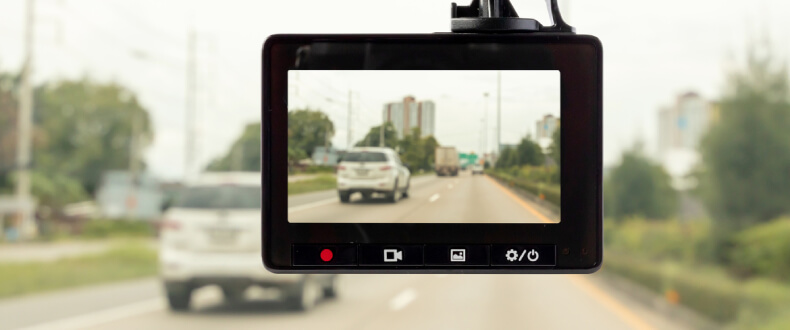You’re driving down the Mississippi highways when suddenly, a reckless driver swerves into your lane, causing a collision. In such moments, dash cam footage becomes invaluable. But can this footage be used as evidence in a courtroom? Understanding the admissibility of dashcam footage can make all the difference when it comes to proving your case or defending against false claims. In this blog, we explore the ins and outs of using dashcam footage in legal proceedings, shedding light on its potential role in ensuring justice on the road.
Understanding Dash Cam Footage
Dash cam footage is a vital tool in today’s digital age, offering a real-time and unbiased account of events on the road. These small, inconspicuous cameras mounted on your vehicle’s dashboard or windshield capture video and audio recordings of your journeys. Dash cam footage has the potential to be a critical piece of evidence in legal cases. It provides an objective record of accidents, road violations, and other incidents that can help resolve disputes and determine fault. As a driver, comprehending the significance of dashcam footage can be the key to safeguarding your interests and ensuring transparency in any legal proceedings that may arise.
Admissibility of Dash Cam Footage
The admissibility of dashcam footage in court is a complex issue that varies from one jurisdiction to another. However, understanding the general criteria for evidence admissibility can shed light on its potential role in legal proceedings. First, for dash cam footage to be admissible, it must be relevant to the case at hand. This means that it should directly pertain to the incident being litigated, such as a car accident or traffic violation. Secondly, the footage must be authentic and trustworthy. This involves ensuring that the video hasn’t been tampered with or altered in any way. Establishing a transparent chain of custody and documenting how the footage was obtained and preserved can be crucial in this regard.
Additionally, the footage should comply with privacy laws, as it may capture faces, license plates, or other sensitive information. If the recording violates someone’s privacy, it may be deemed inadmissible. Moreover, the party seeking to introduce the dash cam footage must follow proper legal procedures, which can include notifying opposing parties and witnesses. Lastly, some courts may require the person who recorded the footage to testify and authenticate it, affirming that it accurately represents the events in question. Consulting with an attorney can help you navigate the specific rules governing dashcam evidence.
Challenges and Limitations
Challenges and limitations surrounding dashcam footage in legal proceedings warrant careful consideration. First, the quality of the footage can vary greatly, affecting its usefulness as evidence. Poor lighting, distortion, or obstructions may hinder its clarity. In addition, in some cases, the absence of corroborating evidence or context within the footage can limit its value. Furthermore, proving the authenticity of dashcam footage and establishing a clear chain of custody can be challenging, potentially leading to disputes over its admissibility.
Contact The Lawyers That Listen
Seeking professional legal advice is crucial to effectively harness the potential of dash cam footage in your case. Let Chatham Gilder Howell Pittman be your trusted ally in handling these legal matters. Contact our skilled team today for guidance and support, ensuring your evidence is leveraged effectively to strengthen your case. Your success is our priority.

